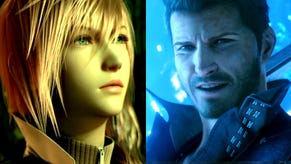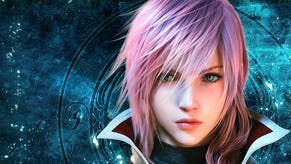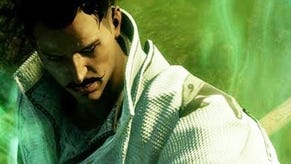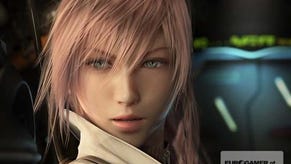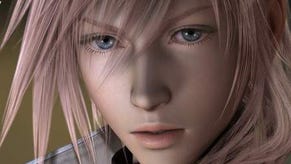Final Fantasy XIII
Lightning strike.
The removal of towns contributes to this feeling. In most JRPGs, towns and cities gave the illusion of non-linearity, providing pools of interactivity to splash about in between the long straight lines that link the rest of the game's drama. It's here, after a big boss fight or a lengthy traversal of a hostile area, that your team could rest and recuperate, away from the threat of yet more battles, free to talk to the town's inhabitants, gather more background information (albeit much of it superfluous) and upgrade equipment in the clearly delineated shops.
By removing these safe havens, Square-Enix no doubt intends for the pace of the experience to be maintained, with no downtime away from the rollercoaster ride of the adventure. As such, equipment is now bought via a menu option at every save point, a trimming away of the JRPG metaphor that may bring with it efficiency but that nevertheless loses something of the sense of journey.
Losing such a core construction in the JRPG framework could be seen as a bold and daring move, one that frees up the developer to try new ideas and approaches. But in reality it's not been replaced by anything significant, the full emphasis on the actual business of play hoisted onto the shoulders of the battle, and character development system, known as the Crystarium.
The battle system is slow to reveal its charms. For the first few hours you'll be hammering the X button without much need for tactical consideration. You control just one member of your party, issuing standard attack moves, special moves or items, and receiving a star rating for your performance in each fight, based on the time you took to finish the enemy off.
It's not until a few hours in, when the game reveals the Optima Change system that allows you to set the AI behaviour of your team-mates (albeit in a simplified manner compared to the gambits in Final Fantasy XII), that you start to earn anything other than gil for your performance in battles, with the level-up economy frozen until this point.
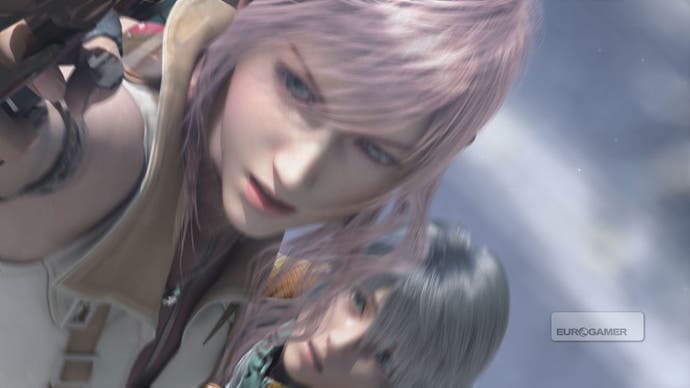
After this the potential richness of the battle system (designed by Toshiro Tsuchida, the architect of the system used in Final Fantasy X) becomes apparent, with time used as currency for moves, and the Optima Change system allowing you to set jobs and roles for your team-mates, and even change them on the fly in battle.
Once you're given access to the Crystarium you are free to develop your characters by spending the points you've accrued through battles to purchase new abilities, upgrade health points and so on. There appears to be little scope for personal expression here: you simply pick one of the two or three new abilities next on offer in the character development tree until your points are gone. So while the set-up feels like an amalgam of previous Final Fantasy battle systems, it's still hard to say just how successful the hotch-potch design has been over the long haul.
After our first five hours with the Japanese version of Final Fantasy XIII, it's still hard to say how successful the game's skew-whiff approach has been in general. For players who saw Yasumi Matsuno's Final Fantasy XII as a creative and interesting exploration of how the aged JRPG format could shift into something contemporary and fresh, the thirteenth game seems sure to be a crushing disappointment. In many ways it emphasises those elements that so many Western gamers hate about the genre (viewed ungenerously, you could say that Square-Enix has spent a million dollars in clothing Sophie Houlden's 'The Linear RPG' in fancy graphics and orchestras).
But for those players who felt disorientated by the twelfth game's bold approach (and that pretty much includes all of Japan, who disliked the game's diversions from the JRPG hymn sheet), Final Fantasy XIII's withdrawal into tradition will be most welcome. Whether that makes for a good videogame or not, still remains to be seen.
Final Fantasy XIII is out now in Japan on PS3. It comes out in Europe and North America for PS3 and Xbox 360 on 9th March.


